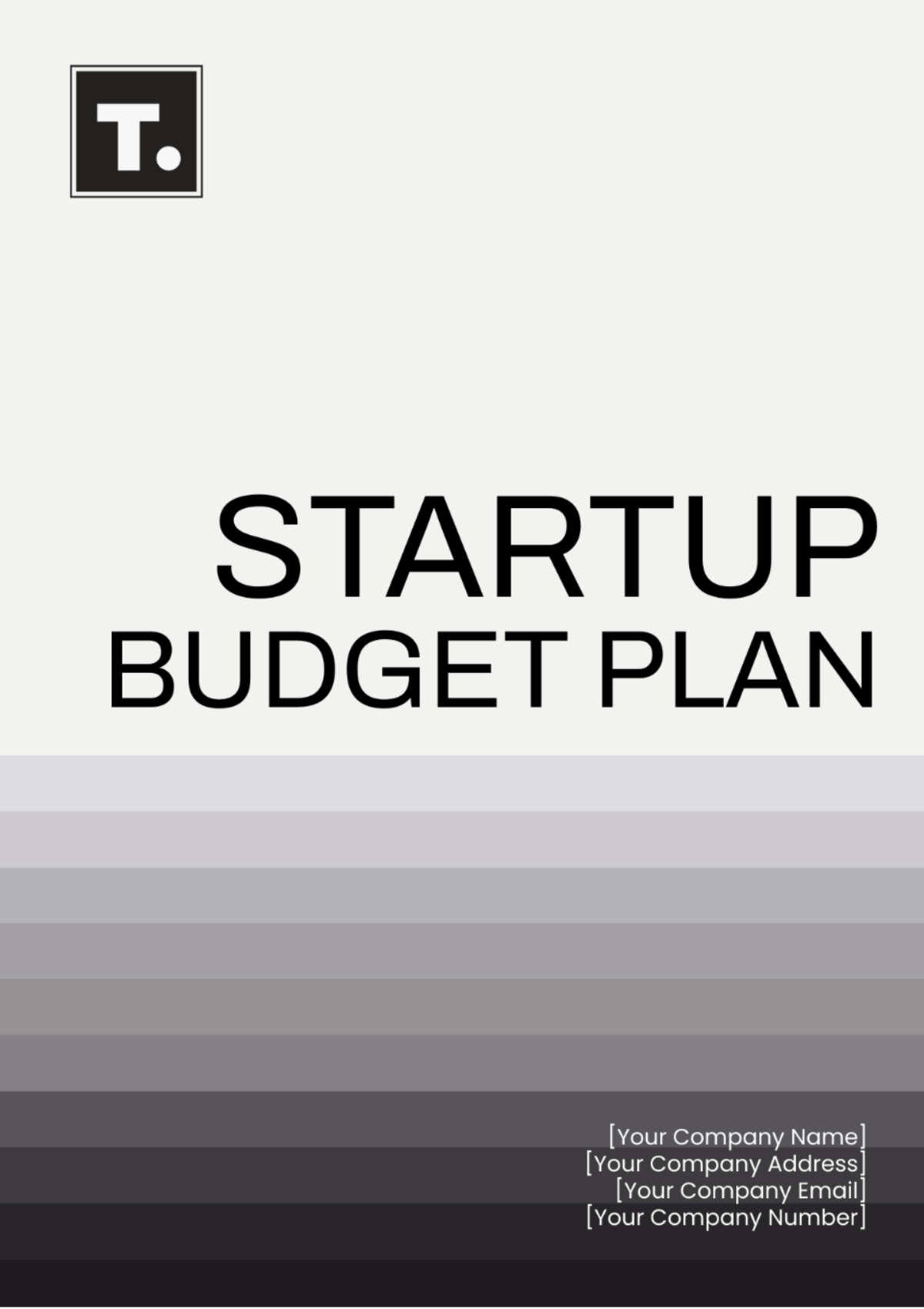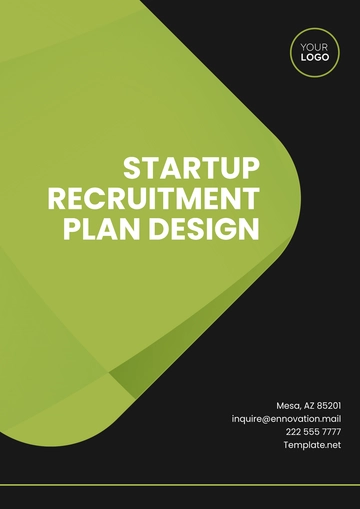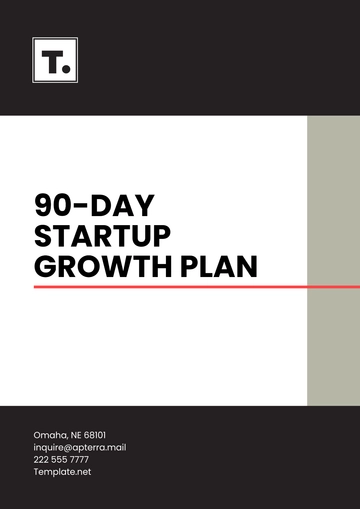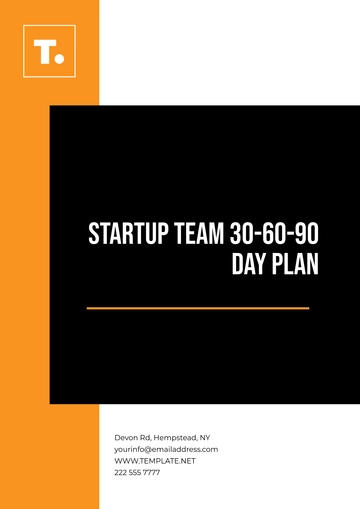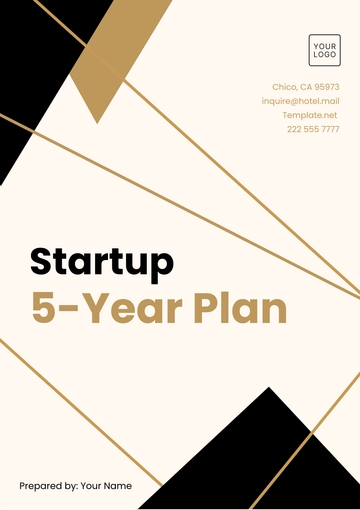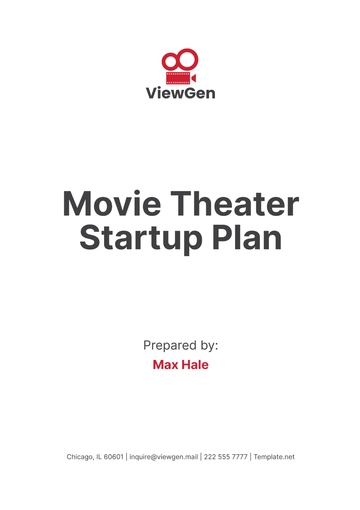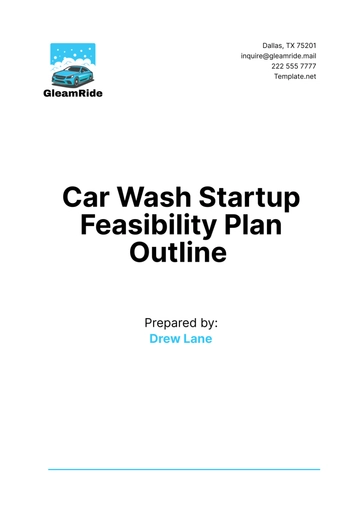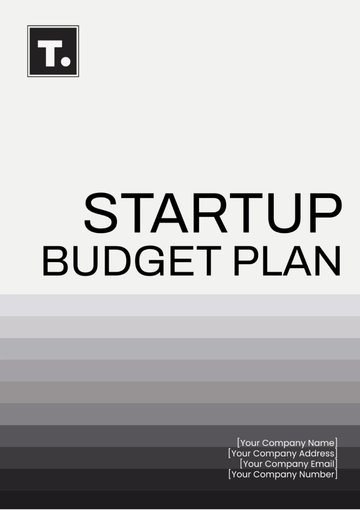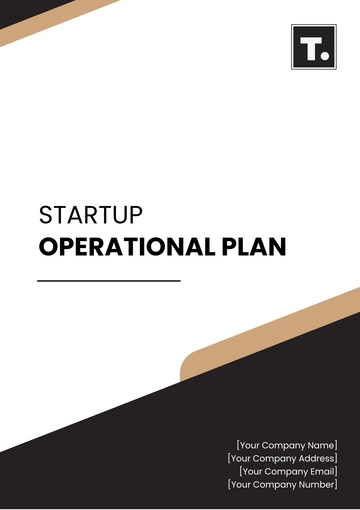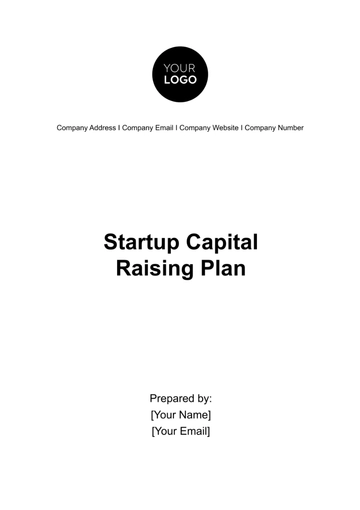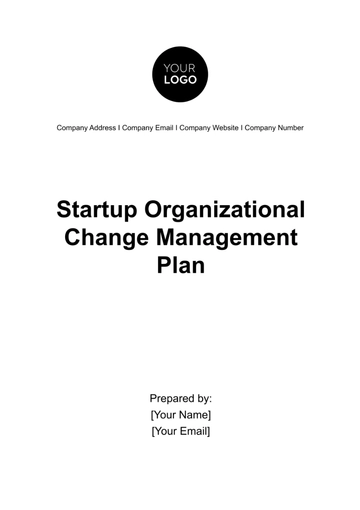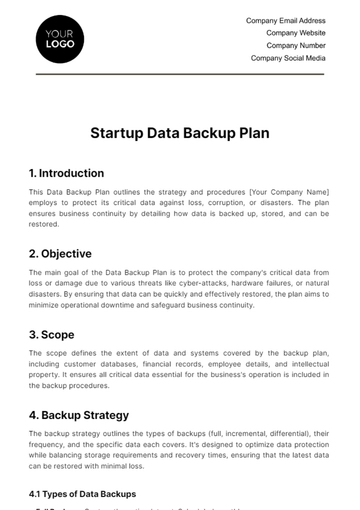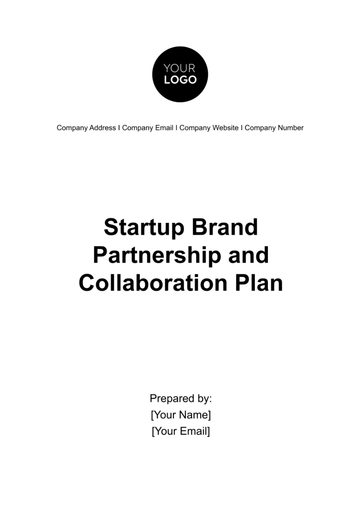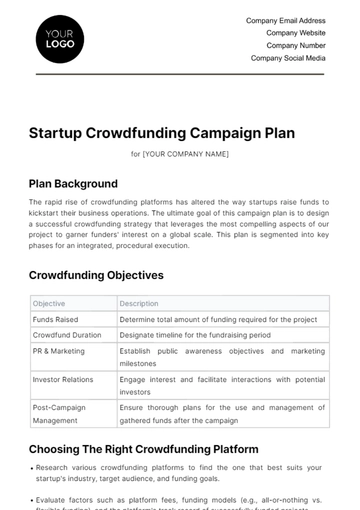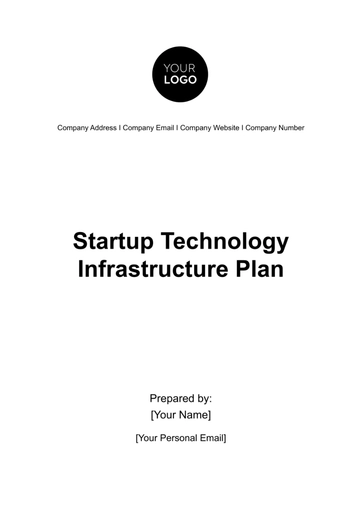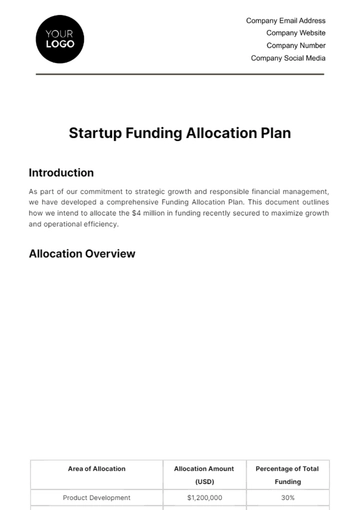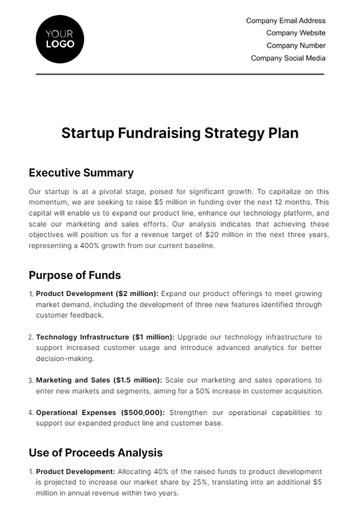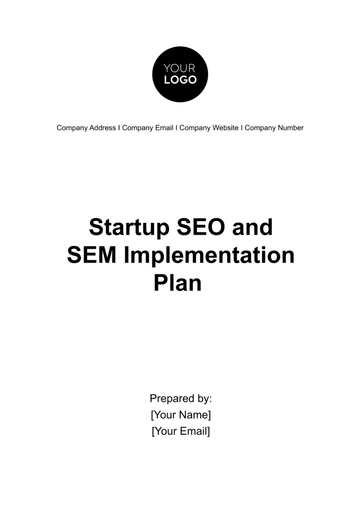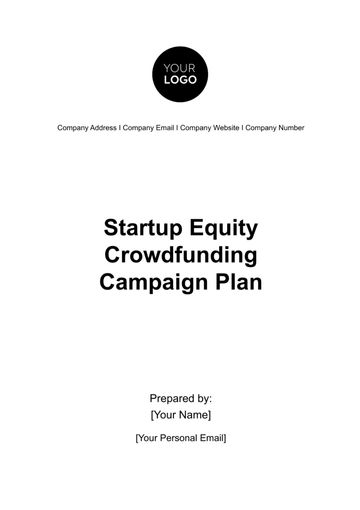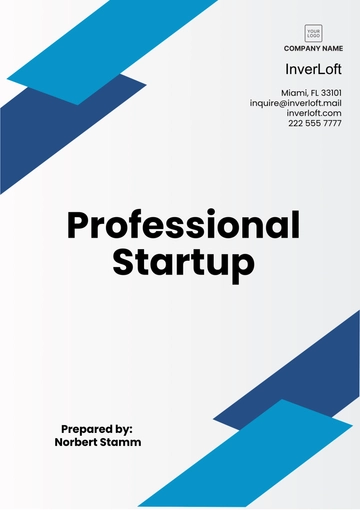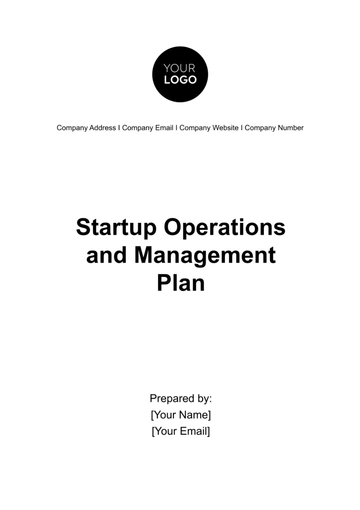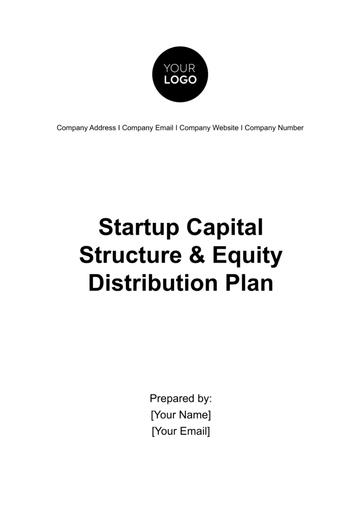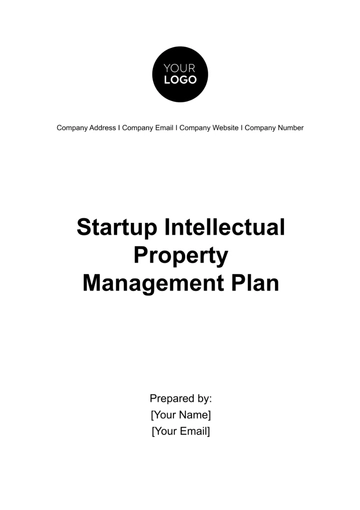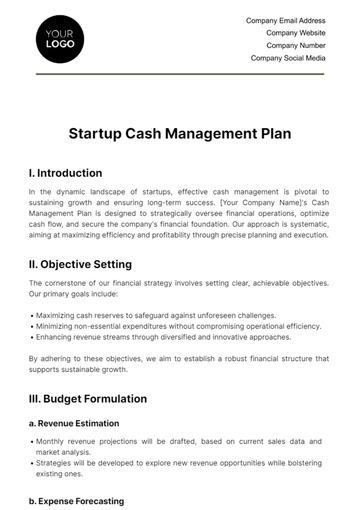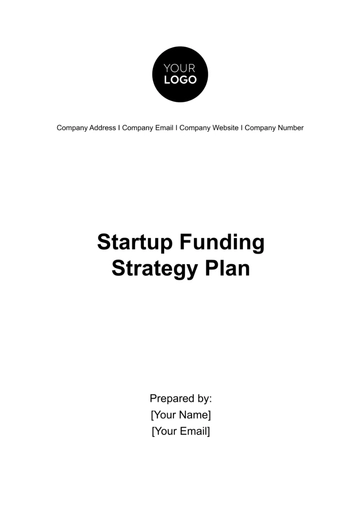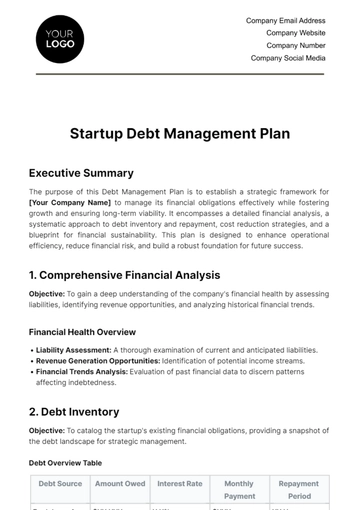Startup Budget Plan
Prepared by: [Your Name]
I. Executive Summary
Welcome to the Budget Plan for [Your Company Name], a startup operating at [Your Company Address]. This plan aims to provide an outline of projected income, expenses, savings, and debt payments for the initial year of operation, starting from January 2050.
II. Financial Overview
A. Income Projections
Starting Year: 2050
Revenue Sources:
Source | Q1 | Q2 | Q3 | Q4 |
|---|
Product Sales | $50,000 | $75,000 | $100,000 | $125,000 |
Service Revenue | $20,000 | $30,000 | $40,000 | $50,000 |
Assumptions:
Revenue projections are based on market research, anticipated demand, and historical data from similar businesses.
Service revenue growth is expected to outpace product sales due to a focus on high-margin services.
B. Expense Projections
Starting Year: 2050
Category | Q1 | Q2 | Q3 | Q4 |
|---|
Salaries | $30,000 | $35,000 | $40,000 | $45,000 |
Marketing | $10,000 | $15,000 | $20,000 | $25,000 |
Rent & Utilities | $5,000 | $5,000 | $5,000 | $5,000 |
R&D | $7,000 | $8,000 | $9,000 | $10,000 |
Assumptions:
Salary expenses are based on anticipated hires and industry standards.
Marketing expenses include digital advertising, events, and promotional materials.
Rent and utilities are estimated based on current market rates for the chosen location.
Research and development costs are allocated for product innovation and improvement.
III. Savings Plan
A. Short-term Savings Goals
Emergency Fund: $20,000 by Q4 2050
Operational Reserves: $30,000 by Q4 2050
B. Long-term Savings Goals
IV. Debt Payment Plan
A. Outstanding Loans:
Startup Loan 1: $50,000 (Annual Interest: 5%)
Startup Loan 2: $30,000 (Annual Interest: 4%)
B. Debt Strategy:
The chosen loan terms were selected based on competitive interest rates and manageable monthly payments.
Loans are structured to avoid excessive financial burden on the company's cash flow, allowing for sustainable growth.
C. Payment Schedule:
Month | Loan 1 Payment | Loan 2 Payment | Total Payment |
|---|
January | $1,000 | $700 | $1,700 |
February | $1,000 | $700 | $1,700 |
March | $1,000 | $700 | $1,700 |
April | $1,000 | $700 | $1,700 |
V. Risk Assessment
A. Identified Risks:
Market Fluctuations: Changes in market conditions may impact revenue projections.
Competitive Landscape: Intense competition could affect pricing and market share.
Operational Challenges: Unexpected expenses or delays in product development may arise.
Regulatory Changes: Changes in regulations may require adjustments to business operations.
B. Mitigation Strategies:
Diversification of revenue streams to reduce reliance on a single source.
Continuous monitoring of competitors and agility in adjusting strategies.
Maintaining a buffer in savings to address unforeseen expenses.
Staying informed about regulatory changes and proactive compliance measures.
VI. Conclusion
This startup budget plan ensures [Your Company Name] is prepared for a successful launch and sustainable growth throughout the first operational year.
By incorporating detailed assumptions, risk assessment, and mitigation strategies, the company is positioned to navigate uncertainties and capitalize on opportunities.
For any inquiries or further details, please contact [Your Name] at [Your Email] or visit [Your Company Website].
Plan Templates @ Template.net
